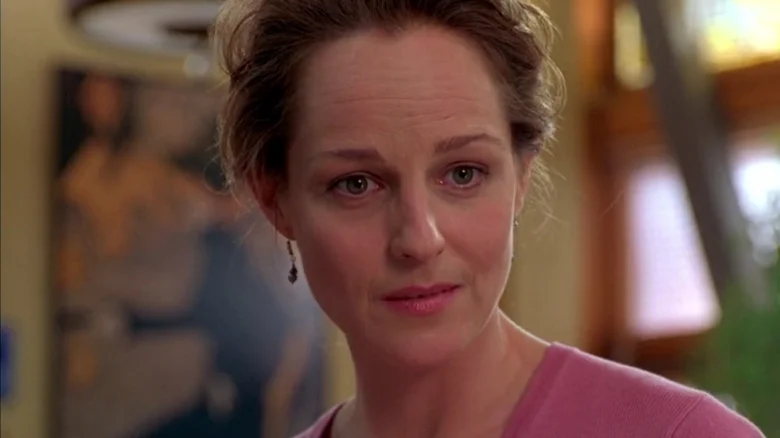Helen Hunt was one of the most recognizable faces on the screen in the ’90s, capturing audiences with her talent and versatility. From sitcoms to blockbuster films, she seemed destined to remain a Hollywood fixture. However, her career took an unexpected turn, and she chose a quieter, more private path. Let’s explore why Helen Hunt gradually withdrew from the Hollywood spotlight and what she has been doing since.
From Early Roles to ’90s Stardom

Helen Hunt’s journey in Hollywood began in 1977 when she appeared in the disaster film Rollercoaster. She continued to build her acting credentials with roles in Girls Just Want to Have Fun, Peggy Sue Got Married, and the medical drama St. Elsewhere. But her major breakthrough came in the ’90s with a series of iconic roles that made her a household name.
Breakout Role in Mad About You
In 1992, Hunt starred as Jamie Buchman in Mad About You, a sitcom about a New York City couple navigating marriage. Her on-screen chemistry with co-star Paul Reiser resonated with audiences, and the show became a staple of ’90s television, winning 12 Emmys over seven seasons. This role catapulted Hunt into stardom and made her one of television’s most beloved faces.
Hollywood Success: Twister and an Oscar Win
In 1996, Hunt starred in the blockbuster Twister, further cementing her place in Hollywood. The following year, she won an Academy Award for her performance in As Good As It Gets, playing a single mother and waitress opposite Jack Nicholson. By the late ’90s, Helen Hunt had reached the peak of her career, and the world couldn’t get enough of her.
Fame Wasn’t the Life Hunt Wanted
The Downsides of Fame
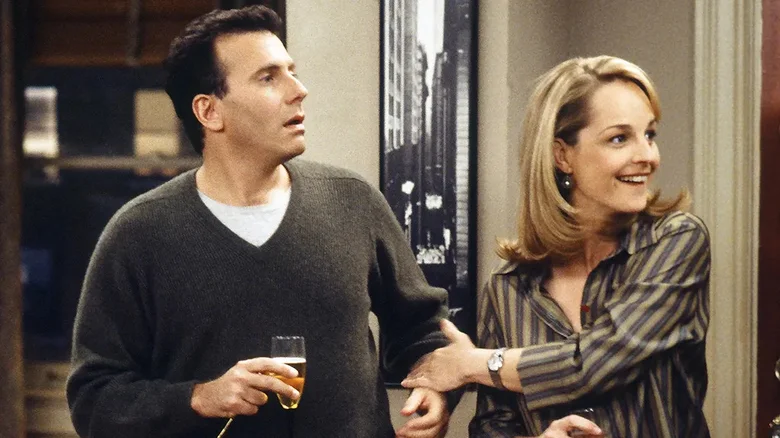
As Hunt’s fame grew, so did her discomfort with it. She started receiving intense media attention and found paparazzi waiting outside her home. In a 2022 interview with The Guardian, Hunt revealed that this level of fame made her uneasy. “There were a couple of years when I was a little spooked,” she admitted. Hunt’s solution was simple but effective: she started living a quieter life.
Choosing a Private Life
Unlike many celebrities who thrive in the limelight, Hunt opted for a life that kept her away from the headlines. “I just became very boring,” she joked. Hunt focused on maintaining a low profile, and gradually, the media attention shifted elsewhere. She knew that stepping out of the spotlight would ultimately grant her the privacy she desired.
Family Over Fame: Hunt’s Priorities Shifted
In 2004, Helen Hunt welcomed her daughter into the world, and her priorities changed. She found family life fulfilling and decided to take fewer roles in order to spend time with her daughter. In an interview with The New York Times, Hunt shared, “I suddenly wasn’t offered parts that were worth walking away from the most compelling thing I’d ever been involved with, which was my family.”
For Hunt, real life proved to be more rewarding than fictional roles. “Why go off and pretend to be someone’s mother or wife when I finally had the chance to have that experience in my real life?” she explained to People magazine. Hunt had started her career young and longed for a personal life outside of Hollywood. Her decision to prioritize family made her a role model for those who value personal happiness over public acclaim.
Hunt’s Transition to Directing and Independent Films
Passion for Directing
While Hunt may have stepped back from acting, she didn’t leave the film industry entirely. After directing episodes of Mad About You, she developed a passion for directing and took on more projects behind the camera. In 2007, Hunt made her feature directorial debut with Then She Found Me, a passion project she had nurtured for nearly a decade. The film, loosely based on a novel by Elinor Lipman, starred Hunt alongside Matthew Broderick, Bette Midler, and Colin Firth.
Challenges in Filmmaking
Producing Then She Found Me wasn’t easy; Hunt raised funds, recruited actors willing to work for minimum pay, and took on the lead role to keep production costs low. The film faced distribution issues when its distributor went bankrupt just before release, but Hunt persevered. She continued her directorial journey with Ride in 2014, a drama about a mother reconnecting with her son after he drops out of college to surf. Although neither film was a blockbuster, they showcased Hunt’s dedication to storytelling and earned her praise for her performances.
Navigating Hollywood’s Limitations and Missed Opportunities
A Twister Sequel and Hollywood’s Reluctance for Change
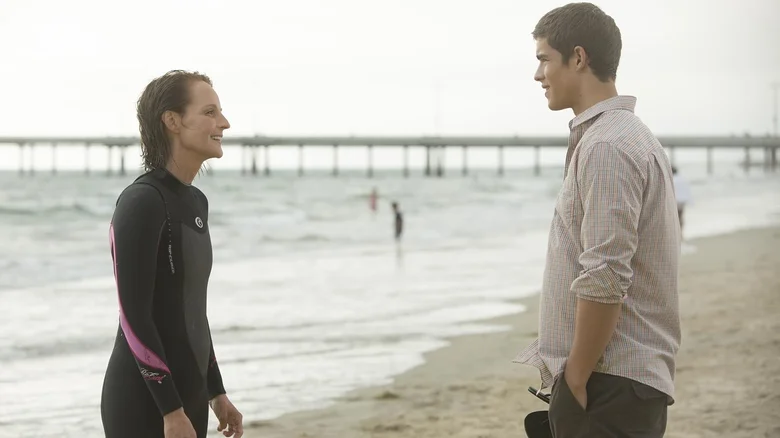
Hunt has been candid about Hollywood’s challenges, including its reluctance to embrace change. In 2020, she teamed up with Hamilton star Daveed Diggs and his collaborator Rafael Casal to pitch a diverse, modern take on a Twister sequel. Despite her connection to the original film, studios weren’t interested. Hunt expressed frustration, noting how Hollywood’s outdated perspectives affect representation on screen.
Limited Roles for Women in Hollywood
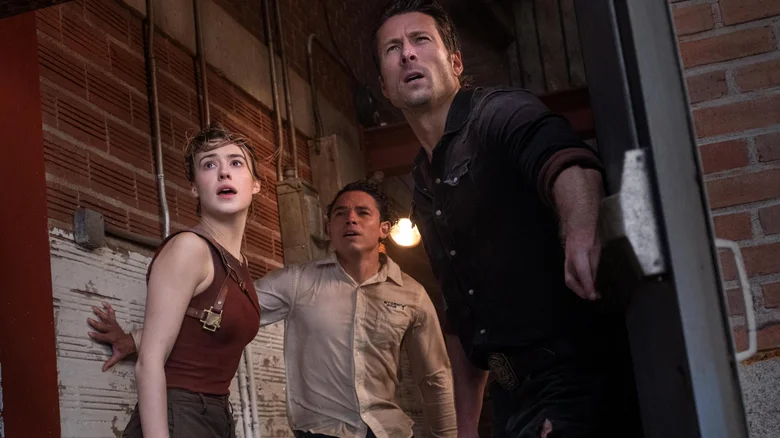
Reflecting on her career, Hunt acknowledged the limited roles available for women, especially as they age. She told The Guardian in 2008 that she hadn’t seen many great roles being offered, saying, “If I had five great roles lined up, then I wouldn’t have had time to write this movie.” Her focus on quality over quantity has kept her work authentic, even if it meant fewer opportunities in mainstream Hollywood.
What’s Helen Hunt Doing Now?
Despite her more selective approach, Hunt continues to act and pursue projects she’s passionate about. Recently, she appeared in Blindspotting, a Starz series created by Diggs and Casal, where she played a free-spirited mother. Hunt also starred in the World War II drama World on Fire, the dark comedy The Night Clerk, and made a guest appearance on Hacks.
Hunt has taken on unique roles in the world of audio entertainment, lending her voice to sci-fi podcasts like Alethea and Solar. She even returned to college, taking one course per semester to expand her knowledge and interests beyond acting.
Embracing Life on Her Own Terms
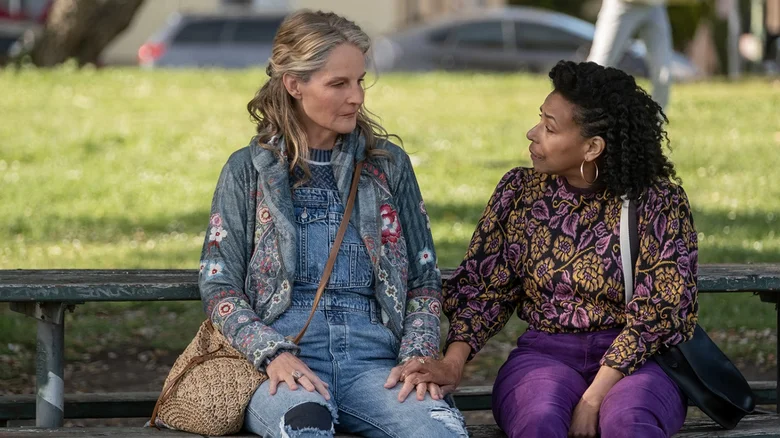
Helen Hunt’s approach to her career is refreshingly unconventional. She has chosen roles that align with her creative vision and prioritized her personal life over Hollywood’s expectations. Reflecting on her career, she told Vulture, “There are times when I love [acting], and times when I really like my life and don’t need it.” This unfiltered perspective has kept her grounded, making her one of the most relatable figures in Hollywood.
Conclusion
Helen Hunt may not be as omnipresent in Hollywood as she once was, but her career remains vibrant, with projects that reflect her evolving interests and dedication to meaningful storytelling. By prioritizing her family, exploring directing, and advocating for greater representation, Hunt has redefined what it means to be successful in Hollywood on her own terms. For fans who miss seeing her on screen, Hunt’s story is a reminder that sometimes, the best choice is to step back and live life on one’s own terms.
